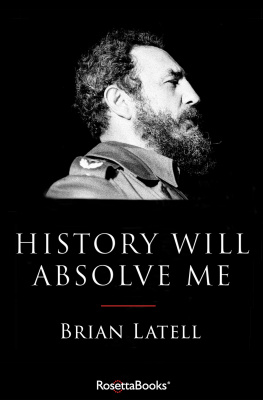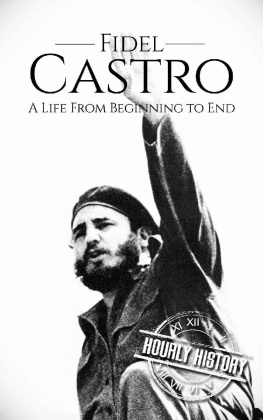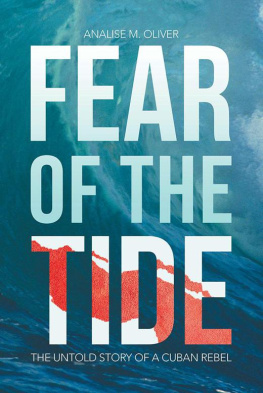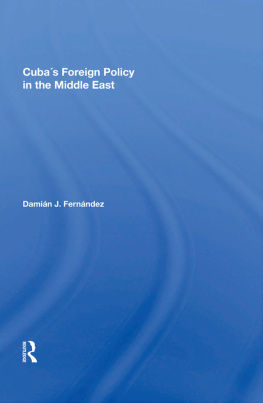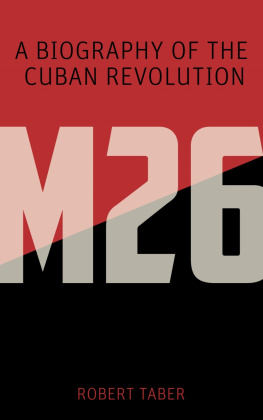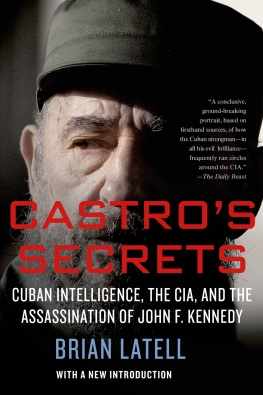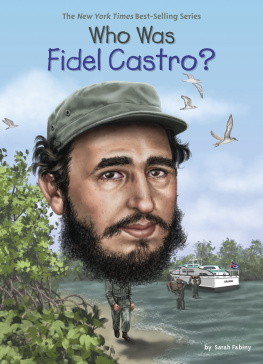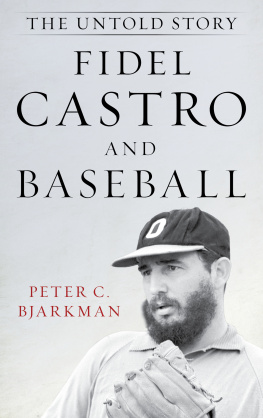Brian Latell - After Fidel: The Inside Story of Castros Regime and Cubas Next Leader
Here you can read online Brian Latell - After Fidel: The Inside Story of Castros Regime and Cubas Next Leader full text of the book (entire story) in english for free. Download pdf and epub, get meaning, cover and reviews about this ebook. year: 2005, publisher: St. Martins Press, genre: Detective and thriller. Description of the work, (preface) as well as reviews are available. Best literature library LitArk.com created for fans of good reading and offers a wide selection of genres:
Romance novel
Science fiction
Adventure
Detective
Science
History
Home and family
Prose
Art
Politics
Computer
Non-fiction
Religion
Business
Children
Humor
Choose a favorite category and find really read worthwhile books. Enjoy immersion in the world of imagination, feel the emotions of the characters or learn something new for yourself, make an fascinating discovery.

- Book:After Fidel: The Inside Story of Castros Regime and Cubas Next Leader
- Author:
- Publisher:St. Martins Press
- Genre:
- Year:2005
- Rating:3 / 5
- Favourites:Add to favourites
- Your mark:
- 60
- 1
- 2
- 3
- 4
- 5
After Fidel: The Inside Story of Castros Regime and Cubas Next Leader: summary, description and annotation
We offer to read an annotation, description, summary or preface (depends on what the author of the book "After Fidel: The Inside Story of Castros Regime and Cubas Next Leader" wrote himself). If you haven't found the necessary information about the book — write in the comments, we will try to find it.
After Fidel: The Inside Story of Castros Regime and Cubas Next Leader — read online for free the complete book (whole text) full work
Below is the text of the book, divided by pages. System saving the place of the last page read, allows you to conveniently read the book "After Fidel: The Inside Story of Castros Regime and Cubas Next Leader" online for free, without having to search again every time where you left off. Put a bookmark, and you can go to the page where you finished reading at any time.
Font size:
Interval:
Bookmark:
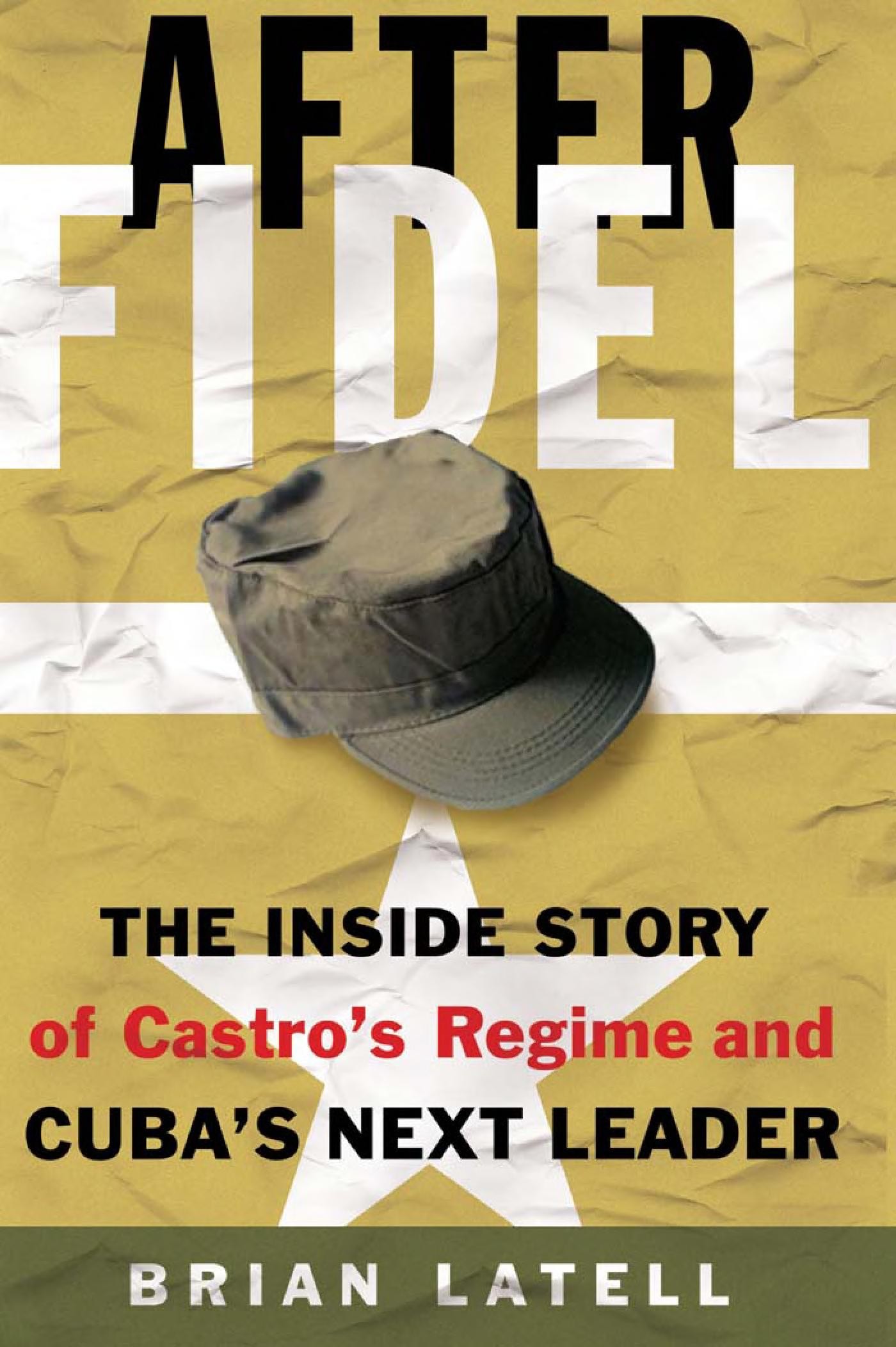

The author and publisher have provided this e-book to you for your personal use only. You may not make this e-book publicly available in any way. Copyright infringement is against the law. If you believe the copy of this e-book you are reading infringes on the authors copyright, please notify the publisher at: us.macmillanusa.com/piracy.
Contents
This book is for Jill
Pity the country that has no hero. Pity the country that needs a hero.
Bertolt Brecht, Galileo
For a leader to emerge, the only thing needed is the need for a leader.
Fidel Castro, 1985
To the extent readers find Fidel and Raul Castro vital in these pages, I am indebted to their many family members, former friends and schoolmates, teachers, associates, and acquaintances who agreed to be interviewed. Ernesto Betancourt was the first and most frequently consulted. Fidels daughter Alina Fernandez and his sister Juana Castro have been especially generous. I am also indebted to Luis Aguilar, Domingo Amuchastegui, Bernardo Benes, Luis Conte Aguero, Norberto Fuentes, Barbara Gordon, Juan Grau, Alcibiades Hidalgo, Huber Matos, Ramon Mestre, Lucas Moran Arce, Fidel Pino Martinez, Jose Ignacio Rasco, Manuel Romeu, and Fathers Armando Llorente, Quevedo, and Feliz. Others who knew the Castro brothers in Havana and Oriente, but wish to remain anonymous, have also assisted in critical ways.
Many friends, former students, and colleagues old and new have generously aided my efforts. They include Ignacio Alvarez, Jose Alvarez, Carlos and Rosa Batlle, Adriana Bosch, Donna Cherry, Peter Corsell, Hans de Salas-del Valle, Sergio Diaz-Briquets, Luis Fortuo, Georgie Anne Geyer, Andy Gomez, Eduardo Gomez, John Hamre, Bill Harlow, Meaghan Marshall, Timothy Naftali, Jorge Perez Lopez, Alexei Porfirenko, Natasha Porfirenko, Dr. Jerrold Post, William Ratliff, Sally Roessler, Henry Rowen, Juan T. Sanchez, Thomas Sanderson, Harry Shukman, Jaime Suchlicki, Juan Tamayo, Maria Urizar, Marc Wachtenheim, Kevin Whitaker, Betty Whitehurst, Abby Yochelson, and Luis Zuiga.
Special thanks to Maria Werlau for the many essential ways in which she helped and to Raul F. Pino for his generous assistance in providing copies of documents and correspondence related to the Castro family.
Many conscientious and creative archivists and librarians at several divisions of the Library of Congress, and at the Hoover Archives at Stanford University, the Butler Library at Columbia University, the Cuban Heritage Collection at the University of Miami, and the Lauinger Library at Georgetown University helped in ways too numerous to mention here.
Among my many mentors at the CIA in the 1960s, and at the National Intelligence Council, three must be singled out because their influence was so profound. They taught me how to write, to think critically and analytically, and to serve the national interest dispassionately. They are Archer Bush, Harold Ford, and Richard Lehman.
My agent Sterling Lord, and Robert Guinsler of Sterling Lord Literistics, never lost faith in this project. Their continuing support and encouragement is greatly appreciated. Gabriella Pearce, my editor, has offered consistently sound advice with exquisite good judgment.
But most importantly, I could not have written this book without the love and support of my wife Jill, and our sons Jerry and John. Jill provided the first commentaries on every word that follows and for many years has patiently endured my fascination with Cuba and the Castro brothers. This is her book as much as mine!
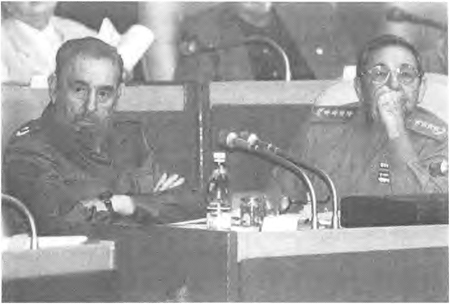
Cuban President Fidel Castro (L) and his brother, Raul. Photograph by Niurka Barroso/AFP/Getty Images.
I began work on the CIAs Cuba desk in July 1964, up on the sixth floor of the Agencys new headquarters building in Langley, Virginia. There were five or six of us working on Cuba, at a time when there were few other leaders of such intense interest in Washington policy circles as Fidel Castro.
New CIA analysts in the 1960s learned by the seat of their pants. There was no CIA University, with pretentious bureaucrats posing as deans or department chairs, and not much codified wisdom about analytic tradecraft. We probably learned better and faster than later generations did, but if so, it was because we were mentored by some of the best the Agency has ever produced.
My teachers were all from the founding generation of intelligence analysts. Most were wise and worn veterans of World War II, many of them scholars and old school intellectuals with broad ranges of interests. Among them were nationally recognized camellia and orchid experts, medievalists, linguists, anthropologists, former English professors, and cross-cultural psychologists. Many of them, even those who had no direct responsibility for Cuba or Latin America analysis, were keenly interested in Castro. They gave me good counsel.
Youve got to get into his shoes, several urged me. They really meant Fidels trademark combat boots and khaki uniform. You have to try to think like him, understand why he reacts as he does. They told me to examine his cognitive style, his emotional underpinnings, psychological dynamics, and to discover whatever was behind the artifice of his performance style.
They told me to ponder the way he makes decisions and goes about problem solving. What motivates and disturbs him? How did all of his experiences before winning power influence his outlook and personality? Unfortunately, very little of his biography was known at that time, as he did his best to obfuscate his formative years and live down his gangland past and penchant for violence.
Almost nothing about his painful, dichotomized childhood was known outside of Cuba, and there was little reliable information about his intellectual formation. Assessing his personality was a high priority precisely because he was so difficult to understand. There was a need to get under his carapace, to probe and understand his inner workings.
Remote leadership assessment enjoyed considerable legitimacy in the CIA in those days, much more so than in recent years. Nationally respected political psychologists and psychiatrists were on staff, and their work was highly valued. It was a positive legacy carried over into the Agency by veterans of the wartime Office of Strategic Services, the OSS, CIAs parent organization.
During World War II the OSS commissioned a classic psychiatric study, the first of its type ever done inside the U. S. government. A team of four distinguished professors and psychologists completed a book-length psychological analysis of Adolf Hitler. It was classified Secret, although a review of an unexpurgated copy today finds no apparent use of sensitive information.
A landmark work, it brilliantly probed Hitlers character and personality, preparing the ground for many similar studies of other foreign leaders. It was a particularly appropriate model for a young Cuba and Castro analyst. That was not because I or any of my mentors compared Castro with Hitler or rejected his revolution out of hand. There was actually a lot of sympathy for what he was trying to do in Cuba, and we appreciated that he was one of a kind.
Except for the Soviet Union, there may not have been any intelligence targets of so much concern in Washington. McGeorge Bundy, President Kennedys National Security Adviser, is said to have kept three boxes for incoming mail on his desk at the White House. There was an In box, an Out box, and a Cuba box.
Font size:
Interval:
Bookmark:
Similar books «After Fidel: The Inside Story of Castros Regime and Cubas Next Leader»
Look at similar books to After Fidel: The Inside Story of Castros Regime and Cubas Next Leader. We have selected literature similar in name and meaning in the hope of providing readers with more options to find new, interesting, not yet read works.
Discussion, reviews of the book After Fidel: The Inside Story of Castros Regime and Cubas Next Leader and just readers' own opinions. Leave your comments, write what you think about the work, its meaning or the main characters. Specify what exactly you liked and what you didn't like, and why you think so.

